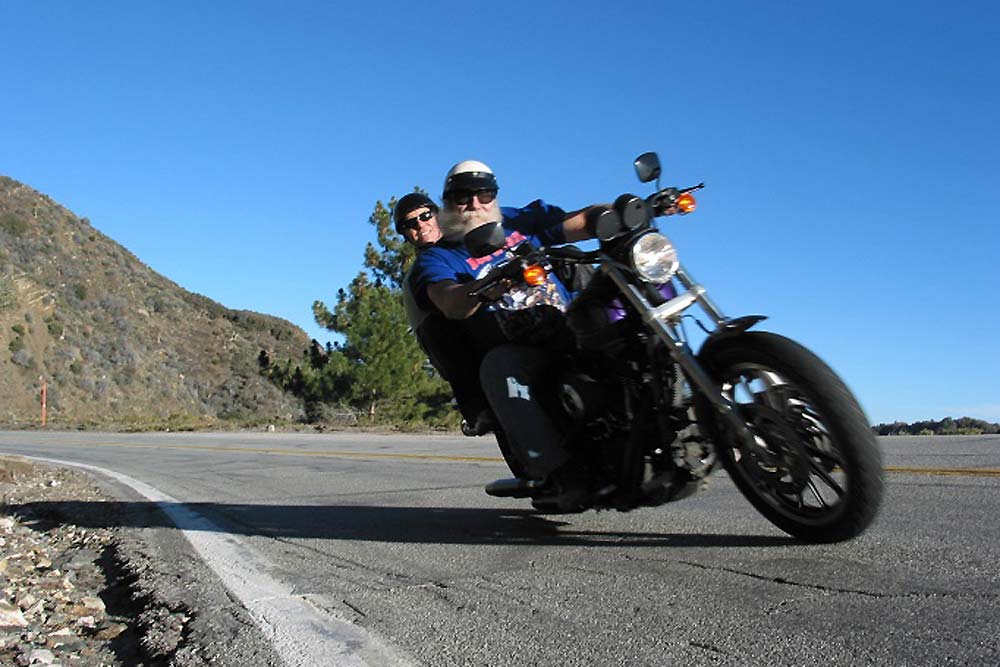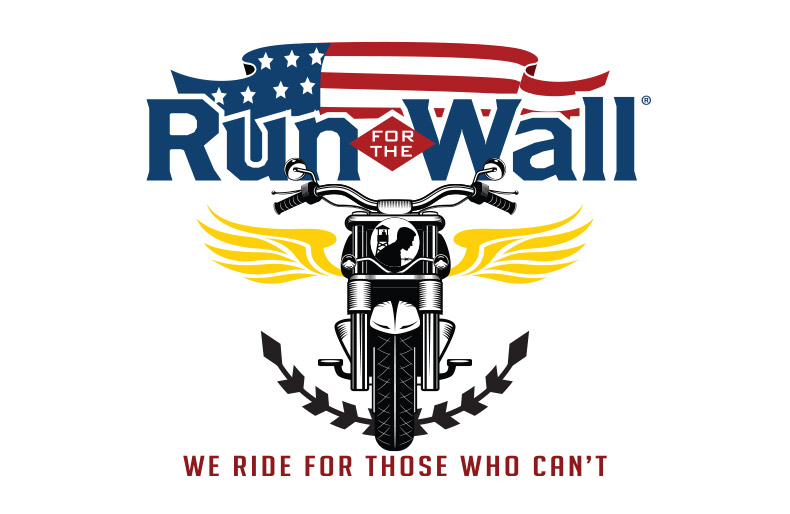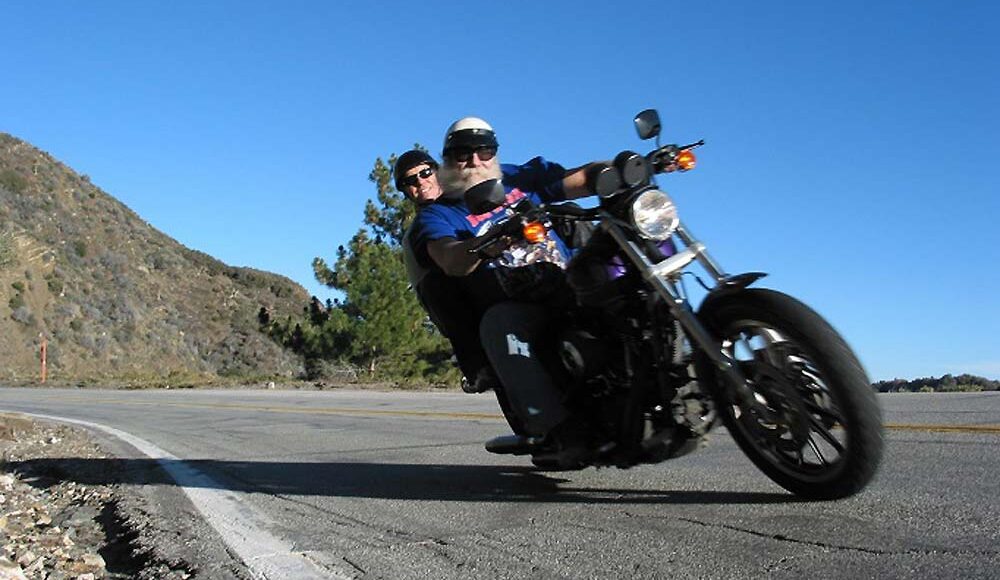“Emerging from darkness, that which is most joyous
The sun’s brilliance does shine brightest on…” (ek)
_____________________________
By Ernest Kearney — These are trying times, no argument, but there is much that can be learned through adversity. Now I have always been a social creature; I love gathering with friends, love parties, love just “hanging out.”
And I always thought these were activities I did because I enjoyed them.
I was wrong. It wasn’t for the sake of my enjoyment that I sought out the company of other people it was because other people are essential to who I am.
Those we love, those we embrace with our friendship are not accessories or attachments to our lives; they are not accents or things we wish to see ourselves as, rather, they are the truest definitions of who we really are.
We come together, reach out, gather and embrace. We create community. There is humankind’s saving grace, its greatest art, the only divinity it may claim.
The touchstone of friendship is very simple: Has in knowing this person made a better person of me?
I can think of no better means of celebrating my good fortune, while expressing my gratefulness to those who have blessed me with their friendship, than by sharing them with others. My hope is by rejoicing in those dear to me, you rejoice in those near to you…..

TRASH AND SHERI
It’s funny. I have no idea of how I first met Trash and Sheri, and yet I can’t imagine them not being in my life. Their world is not my world, mine is not theirs. Trash is a ‘Nam vet and a biker: the true breed of biker, not the BS sort. He’s done time and he’s wrecked himself up pretty good once or twice: Sheri, whether it meant waiting or healing, was always there for him.
Sheri and Trash both meet the “touchstone” standard I’ve set, for together they taught me how startling human beings can be, Sheri with her penetrating insights, sharp as a scalpel’s blade and Trash by punctuating his rants and raves with the poetry of Emily Dickinson…
________________________
RUN FOR THE WALL, 2000
by
Sheri Haley

By Sheri Haley — On May 16, 2000, I left my home in Kagel Canyon, California, to attend the 12th Annual Run for the Wall event in Washington D.C. I would be only one of the approximately 300,000 in attendance that year.
I am not a Veteran and have never been in combat. In fact, I have never served in any branch of the military. I am not a man either, but those were the days when women were not recruited for armed combat duty. I was, however, a protester of the Vietnam War in the late ’60s.
I do not own a motorcycle.
What was I doing there?
I went on this run because I am married to a Vietnam Veteran. My husband of 24-years served in Vietnam in 1965 and 1966. On 11 April 1966, his unit, 1st Division, 2nd Battalion, 16th Infantry Rangers, Charlie Company, fought one of the bloodiest battles of the Vietnam War. His company was supposed to be 291 men strong, but 157 of them were not eligible for combat duty when “Operation Abilene” began.
On the morning of the eleventh, 134 men had been sent out on patrol and were attacked by a battalion of North Vietnamese Regulars. The fighting stopped a day later, on 12 April 1966, with 106 men killed or wounded. Only 28 soldiers came out unscathed. My husband, Ron “Trash” Haley, was one of those men.
I rode all the way to D.C., and back home again, on the back of Trash’s 1969 Harley-Davidson Shovelhead. We had the distinction of being on the oldest bike on the run. People would walk up to us and marvel at the fact that this old motorcycle not only still ran but ran well enough to carry, not one but, two people on a journey that covered about 7,000 miles roundtrip. Trash and I would further shock people by telling them that the bike had not been rebuilt since 1991.
However, this run is not about the bike…as amazing as it is. No. The run is about the Veterans, both living and dead.
It is about honor and sacrifice and pride.
It is about those men who never came home.
It is about remembering the men who gave their lives and those whose fate is still unknown.
It is about every Veteran that has fought in a war.
I was touched by the camaraderie between strangers—men who had never met before could reach out to hold one another and shed tears together without shame. All across the country people would turn out to see us pass by on this Nation’s roads and highways. On freeway overpasses and along the sidewalks in the cities and towns we passed through, people would be waving flags and shouting greetings. When we would stop for the night, entire towns would turn out to shake the hands of the Veterans and thank them for serving their country.
And to welcome them home.
In the town of Wentzville, Missouri, we stayed at the Holiday Inn. It had started raining just as the pack of 300-plus motorcyclists rolled off the highway for the night. There was no garage or carport in which to park and protect the bikes from the storm. The only protection for the bikes was the lanai in front of the entrance of the motel. Trash went in to ask the manager if we could park the bikes under the lanai and on the large sidewalk area on either side of the front doors. The manager said yes.
Riding up the wheelchair ramp, the riders lined up their bikes in precise military-like fashion on each side of the doorway. The carport area was two lanes wide and we were told that we could use the lane farthest from the curb to park more motorcycles. It was this kind of hospitality that was shown all across the country.
Another time, in the town of Rainelle, West Virginia, Trash and I did not have any motel reservations. The next closest place was a town 20 miles away. Trash went into the Moose Lodge where we were being fed dinner that evening and breakfast the next morning to inquire about finding closer accommodations. He talked to an old man that lived in town a few blocks from the Lodge. The man and his wife offered to put Trash and me, plus a friend of ours, up for the night in their home. Even with petrol at ever-increasing prices, a few of the gas stations gave everyone free fuel. It was amazing how people would come together for a common cause. It helped restore my faith in the general public.
The morning of the ride to the Vietnam Memorial Wall, everyone gathered in the north parking lot of the Pentagon. For several hours, smaller groups of motorcyclists would ride into the lot and line up with those that had arrived before them. Whether they rode alone or in a pack of several hundred, they came.
On the ride to the Vietnam Memorial, the streets were lined with people along the route we took to the Wall. Some of the people would wave, others would applaud, while some would stand erect and salute. As we slowly rode down Constitution Avenue, hands would reach to touch the shoulder or grasp the hand of the motorcyclists as we paraded by.
What was I doing there?
When the run began, I was going to be with my husband, but my reasons began to change with each mile that we traveled.
As we rode across the country, people from all walks of life had dropped what they were normally doing to climb on a motorcycle and join those of us already on the road. What you were riding and who you were failed to mean anything. The people who could not ride with us came out to welcome us. Joe Citizen and Scooter Tramp alike were transformed into motorcyclists sharing a common bond. They were all Veterans and their bond was to remember the brothers who did not return from war—the Prisoners of War and those Missing in Action. That is what I was doing there.
______________________
EK’s Note: (*)The military debacle know as “Operation Abilene” mentioned by Sheri is the subject of the recent film, The Last Full Measure.
The film’s focus is the 34 year struggle of those who survived the battle to have a posthumous Medal of Honor awarded to William H. Pitsenbarger, a US Air Force Pararescueman who left the safety of his medical chopper to attend the wounded in the midst of the firefight, saving over 60 lives. The film stars Christopher Plummer, William Hurt, Ed Harris, Samuel L. Jackson and Peter Fonda in his final film role.
Commentary from survivors of that action are played alongside the final credits.
Trash is the second veteran to speak.
_______________________
Lea
by
Ron “Trash” Haley
Lea, a lady about my age (54), who lives a short distance from me, is a teacher who was once a Vietnam War protester. Recently she was doing a paper, on the turbulent ’60s, that was to be part of a well-attended faculty presentation. She asked me if I would contribute a soldier’s point of view of the war. I sent her this:
A VIETNAM COMBAT VETERAN SPEAKS
By Trash — On the other side of the Vietnam Experience were young men and women who didn’t understand what the war was about, but their patriotism made them join the service right out of high school and volunteer for Vietnam as soon as they were able.
Inexperience and youth, combined with their belief in their government’s righteousness in the cause of freedom, made them eager for a war they had no way of comprehending, and slammed them into a bloody and violent combat from which few returned unchanged.
It is said that in a war only one soldier in seven will, actually, see “front-line” combat.
This might be true for other wars, but Vietnam had no “frontlines.”
Every inch of the country was a combat zone and every person in it was a potential enemy. You didn’t know who or where the enemy was until a kid selling fruit turned into a human bomb and blew up in your face, or an old farmer in a rice paddy you just passed dropped his hoe, picked up a rifle and shot you in the back. Though only one in seven soldiers would see combat, none could breathe an unafraid breath anywhere “in-country.”
In other wars, returning soldiers were met with a hero’s welcome by a grateful nation. Not so with Vietnam!
Those who did not return alive joined the honored dead from all of man’s previous wars, wherever that may be. But those who did return alive faced something different than had any before them.
Most were not wounded, physically or mentally, and were able to quietly melt back into a society that didn’t want to hear about their war, so they kept quiet about it and led normal lives. Those who returned with visible wounds went into the understaffed and underfinanced hospitals of a Veterans Administration that a weak government would not support because the people were against the war.
But there were a few who saw things in Vietnam that no one could see and not be changed by it. Words alone can never tell what those few saw, and none of them would say the words if they could. These “changed” few returned to a society that shunned them, and a government that ignored their needs. They had no way of melting back into society. They were “lost,” because they were changed too much. Some tried to get help from the VA and were turned away because the government refused to recognize anything but torn flesh as a treatable wound.
Some just went into the mountains never to be seen again. A few remained in society, yet outside of normal society. If they were strong, they fought back and became “outlaws” from society who stood alone. If they were not strong, they became the “homeless” and lived in despair. Many would just lie down and die.
Then came the Gulf War.
We won!
Returning soldiers were received as heroes and rightly so. The VA received new funding from a weak government backed by a grateful people. For those few who actually faced the horrors of combat and suffered the “unseen wounds of war,” there was help.
Post-Traumatic Stress Disorder (PTSD) was recognized as a war related, but treatable condition. The few remaining “lost” soldiers from the Vietnam war, who for over thirty years faced each new day alone with their untreated “unseen wounds of war,” were included in this new help for “lost” Veterans.
Most of us feel in our hearts that the government would exclude us if it knew how.
The day after I sent this to her, Lea sent a reply. She said she wanted to apologize for protesting, apologize for hurting, apologize for not understanding what it was like for those of us who did the fighting. She asked me if I could ever forgive her.
I replied: “Lea, you were right to protest the war. You knew it was wrong 30 years ago. I just recently learned that the war was started by McNamara’s lies and Johnson’s weakness once he learned the truth. It was escalated because of bad advice from “experts,” unaware of the total commitment of the North Vietnamese. The war was supported by greed, commanded by fools and lost shamefully. But the dead are still dead, I am still changed, and my tears are still real.”
Lea came over to my place the night she gave her presentation. She wanted me to know that it was met with much applause, all except the “Veteran Speaks” part. She told me that that part received a standing ovation from a tearful audience, and many requests for reprints.
Then we both started crying, she gave me a big hug, and said “Welcome Home.” Two simple words, too long in coming, but I will remember always how good it felt to finally hear them.
_________________________
Like us on Facebook
Follow us on Twitter @theTvolution
Stay Updated: Find our Subscription Box on the Left Rail
Contact Us: TheTvolution@gmail.com
We Thank You for Supporting Artfully Independent Voices






Ron "trash" haley | August 29, 2020
|
Sometimes in fleeting memories, sometimes I can smell the blood, but it is always with me .. one day after easter sunday, April 11, 1966, Operation Abilene, mekong delta